DIALOGUES WITH MARTA CABRERA
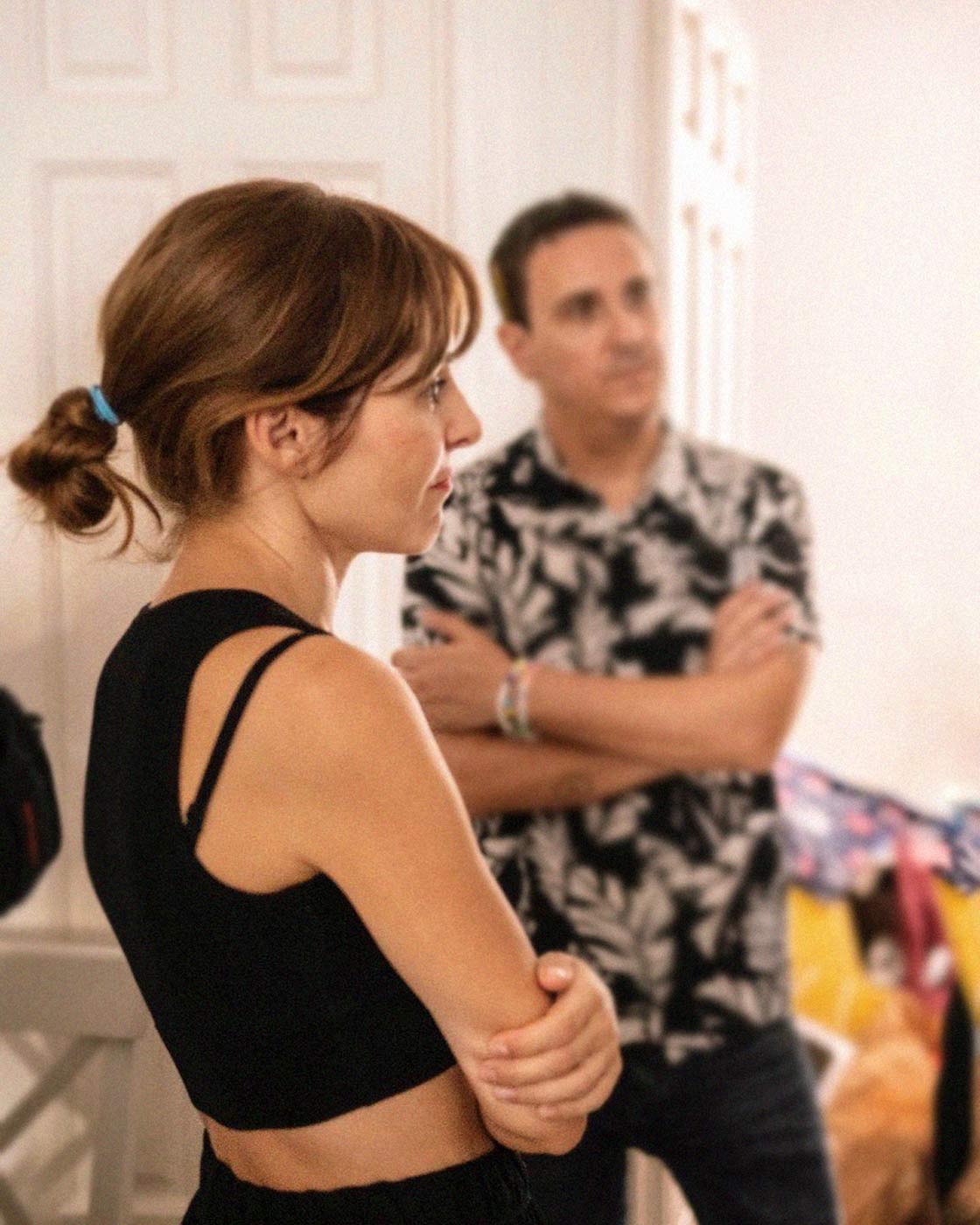
MARTA CABRERA DURING THE FILMING OF "ANCESTRAL"
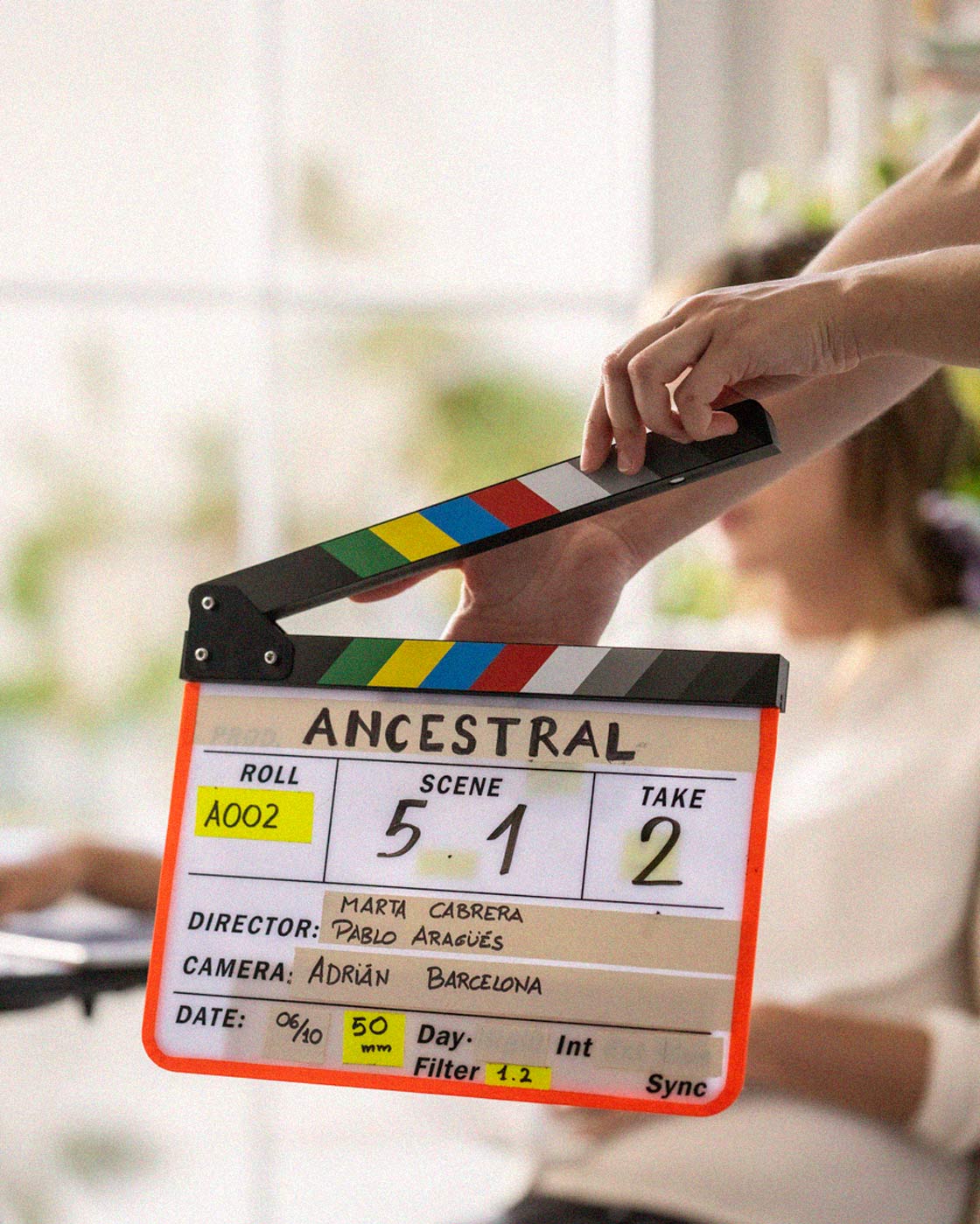
FILMING OF "ANCESTRAL"
In Naguisa, we recently had the pleasure of meeting Marta Cabrera, director, screenwriter and film producer, in a rather unexpected way: she contacted us to collaborate on her new project, 'Ancestral'. This film, which will soon be released, has an impressive script and cast, and in the face of so much beauty and talent, we could not resist.
While we wait for the premiere of 'Ancestral', we invite you to learn more about Marta. You can follow her profile on Instagram , discover her filmography on Filmin and read the interview we conducted with her. In it, Marta shares details about her work and her creative process as a director, screenwriter, producer and mother. We are sure that her story and vision will inspire you!
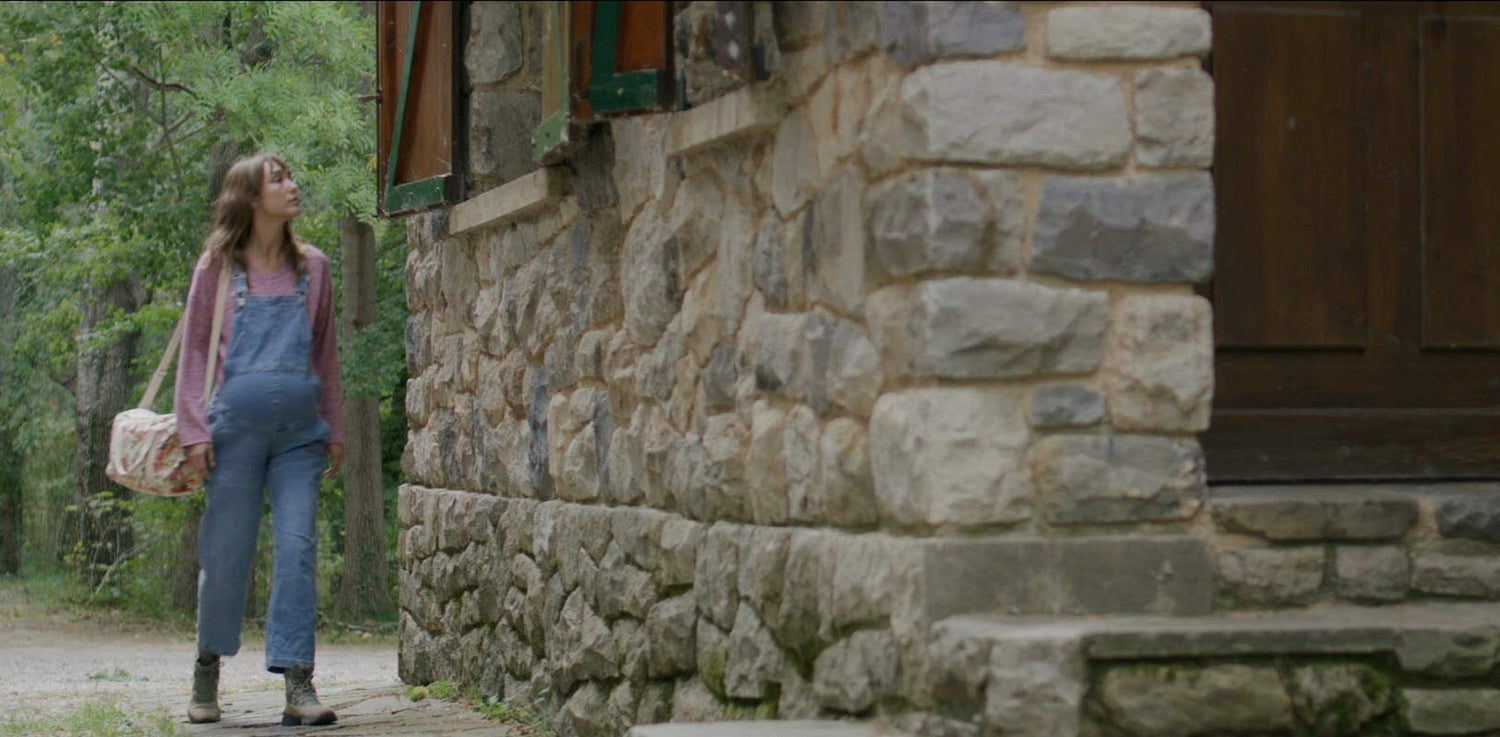
ALMUDENA AMORE IN "ANCESTRAL" WITH ITS ARIETIS TOPO

ALMUDENA AMORE IN "ANCESTRAL" WITH ITS ARIETIS TOPO
Who is Marta Cabrera? How did you start your career in the film industry and what inspired you to found your own production company?
I was born in Vigo in 1984 and studied film there. My goal was always to be a director, but my first jobs were as a producer for Galician regional television and I began to feel comfortable in that role. In 2010 I moved to Aragon to work on the production of an international documentary and from that project, in which I learned a lot, I began to produce my own.
It was in 2015, days before becoming a mother, that I released my first film as a producer, entitled “Novatos”, a drama that denounced the scourge of hazing in Spanish universities. The film premiered at Seminci and months later was acquired by Netflix worldwide. That allowed me to take a break and focus on enjoying the new personal stage that was beginning for me. During that time I made documentary projects and music videos for bands such as Neuman or Siniestro Total.
It was in 2018 that I decided to found my production company Redwood Films. My idea was to do fewer projects, but more ambitious ones. So, in 2021, after the birth of my second daughter, I shot “Para entrar a vivir”, a film with which I also returned to directing.
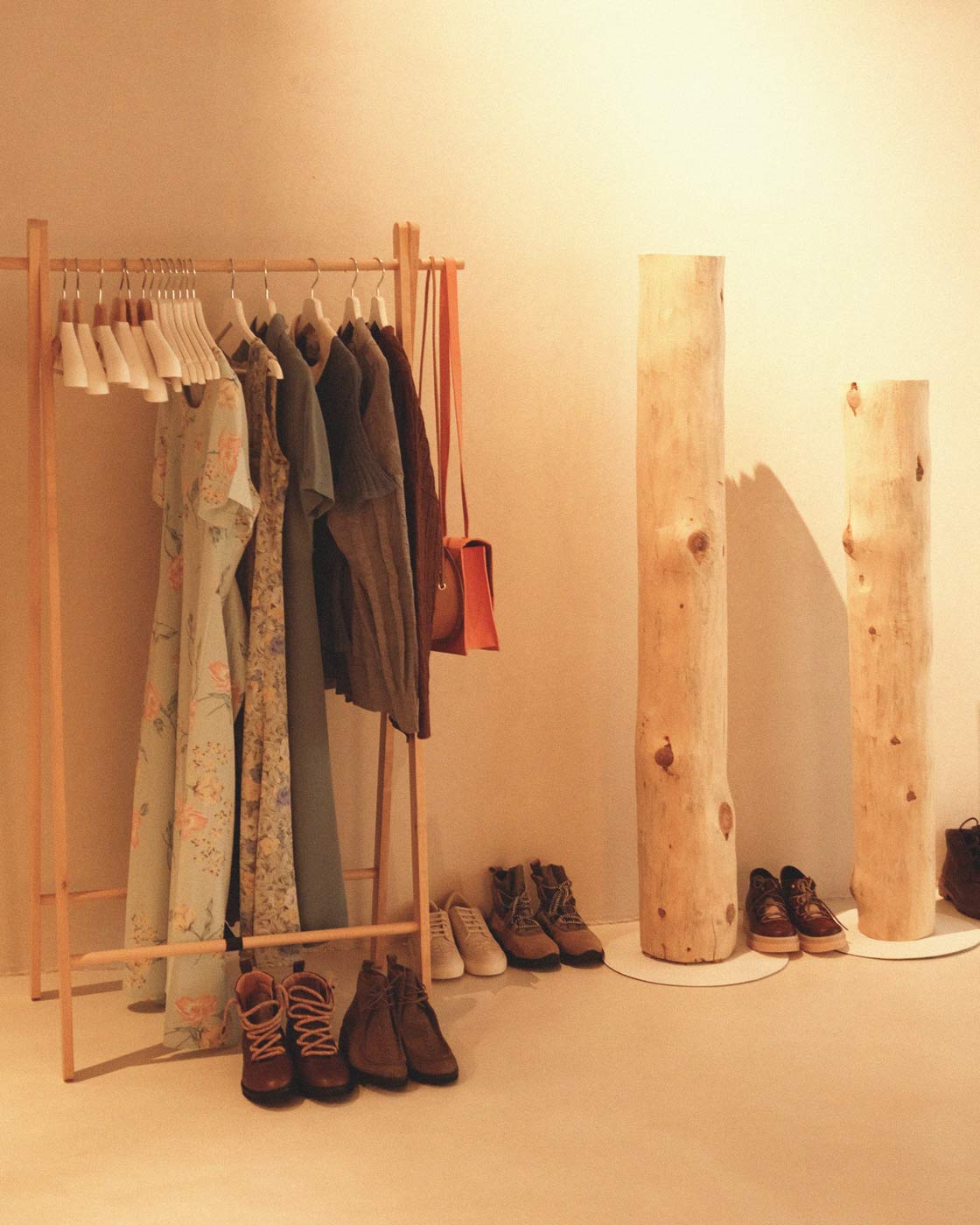
SOME OF THE NAGUISA USED BY THE ACTRESSES OF "ANCESTRAL"
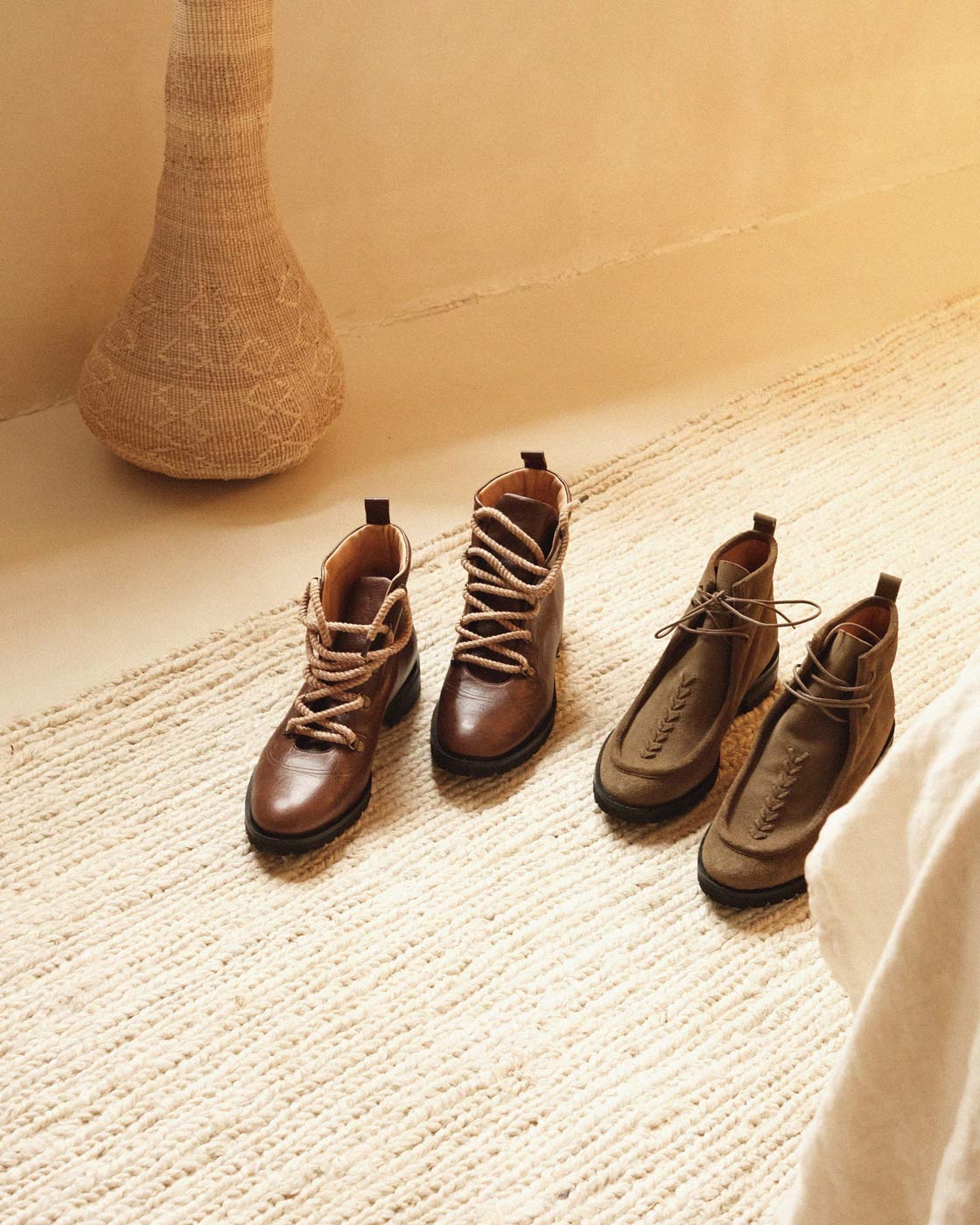
MODELS: BROWN SATIN AND GREEN MESTA
Tell us more about your current project, “Ancestral.” What led you to work on this particular project?
The seed for “Ancestral” began years ago, before the pandemic. It has been a long process, with many versions of the script until the final version was shot.
“Ancestral” is a drama that explores the complexity of family relationships from a fantasy perspective. It is a genre film, but with a strong feminist and protest background. I am fully involved in this project: I co-wrote the script with Pablo Aragüés , with whom I also co-direct the film. In addition, I am the producer and I was personally in charge of choosing the cast of actresses.
For me, it was essential that the film have an all-female cast and that it represents different ages and generations of women. Ancestral is made up of strong, independent female characters who tell their own stories. It is the project I am most proud of to date.
"Ancestral" has a deeply feminist undertone. Do you think cinema can be a powerful tool to address feminist issues and promote social change?
Absolutely. I think that cinema has a social component, it is a powerful speaker for our message, a tool for the transformation of society. Cinema has the power to promote values, perpetuate and even transform stereotypes and models of conduct. That is why those of us who make films have an enormous responsibility. A film can invite you to reflect, to analyse, to become sensitive to certain situations that might otherwise be foreign to you. With “Ancestral” I was clear that I wanted to tell a story that would resonate. To take advantage of the opportunity to create something that encourages debate. “Ancestral” is a critique of the patriarchal system, but told from a fantastic perspective, like a story, so that the message and the change reach more people.
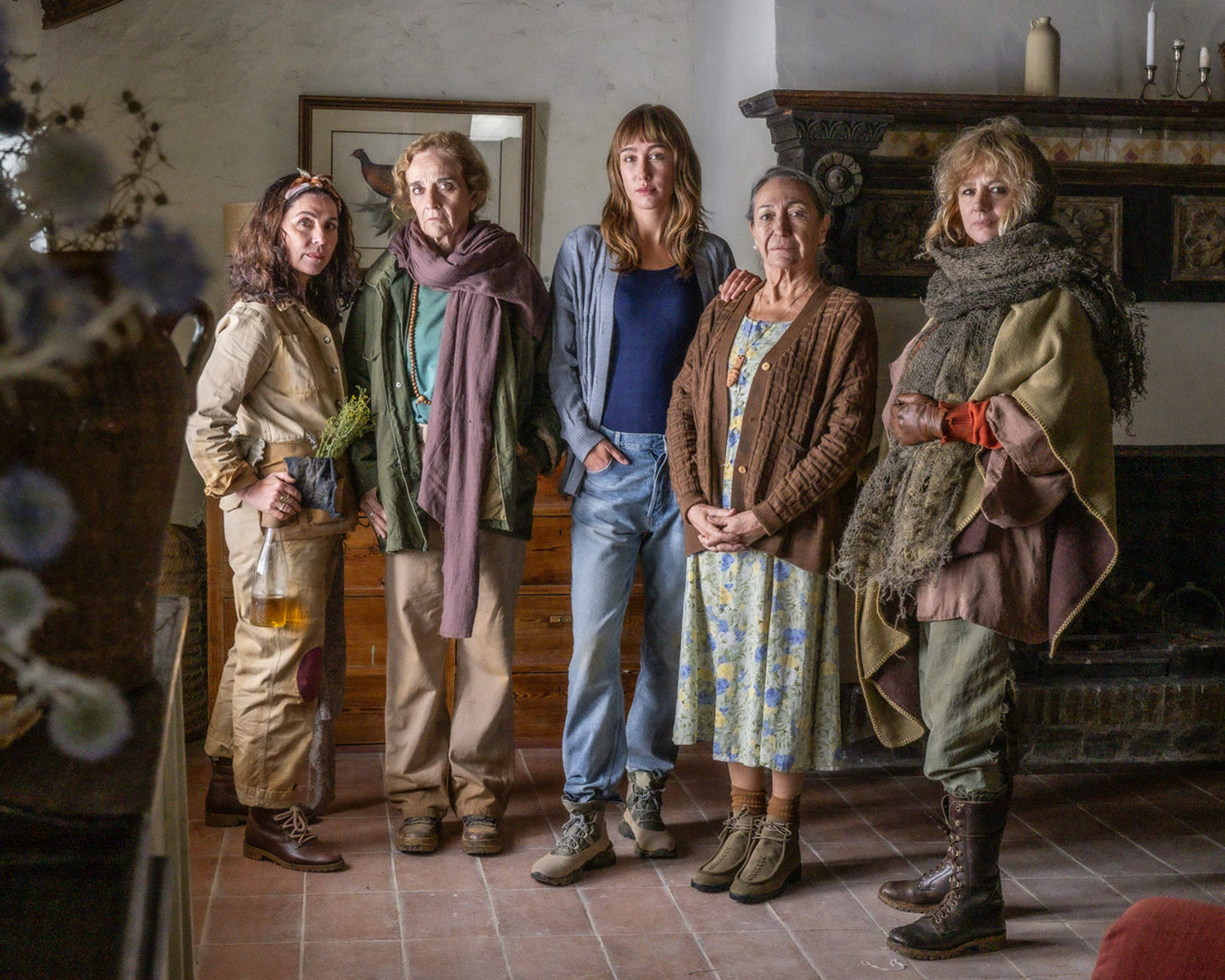
CAST OF "ANCESTRAL": ANA FERNÁNDEZ WITH BROWN SATIN, LUISA GAVASA WITH GREEN ABRA, ALMUDENA AMOR WITH ARIETIS TOPO, CONSUELO TRUJILLO WITH GREEN MESTA, AND EMMA SUÁREZ

CAST OF "ANCESTRAL": ANA FERNÁNDEZ WITH BROWN SATIN, LUISA GAVASA WITH GREEN ABRA, ALMUDENA AMOR WITH ARIETIS TOPO, CONSUELO TRUJILLO WITH GREEN MESTA, AND EMMA SUÁREZ
Can you share some exciting details about the production process of “Ancestral”? Any memorable moments or anecdotes you want to highlight?
Of all the projects, Ancestral is the one I am most proud of. Assembling a cast of actresses like Emma Suárez, Luisa Gavasa, Consuelo Trujillo, Ana Fernández and Almudena Amor and seeing them work together has been magical. I remember the first day of filming when they all met together. That day we were filming sequence 72, the longest in the entire script: a conversation around a table of more than 12 pages. It took a whole day for just that scene. Seeing them perform it was one of the most exciting experiences I have had as a filmmaker.
It was a tough shoot logistically, we shot in many different locations, all more than an hour and a half away from the city and in the middle of nature. We even shot inside a cave. After spending so many hours in there, it felt really overwhelming, but the result was spectacular.

MODEL: RAW-BEIGE SNEAKERS
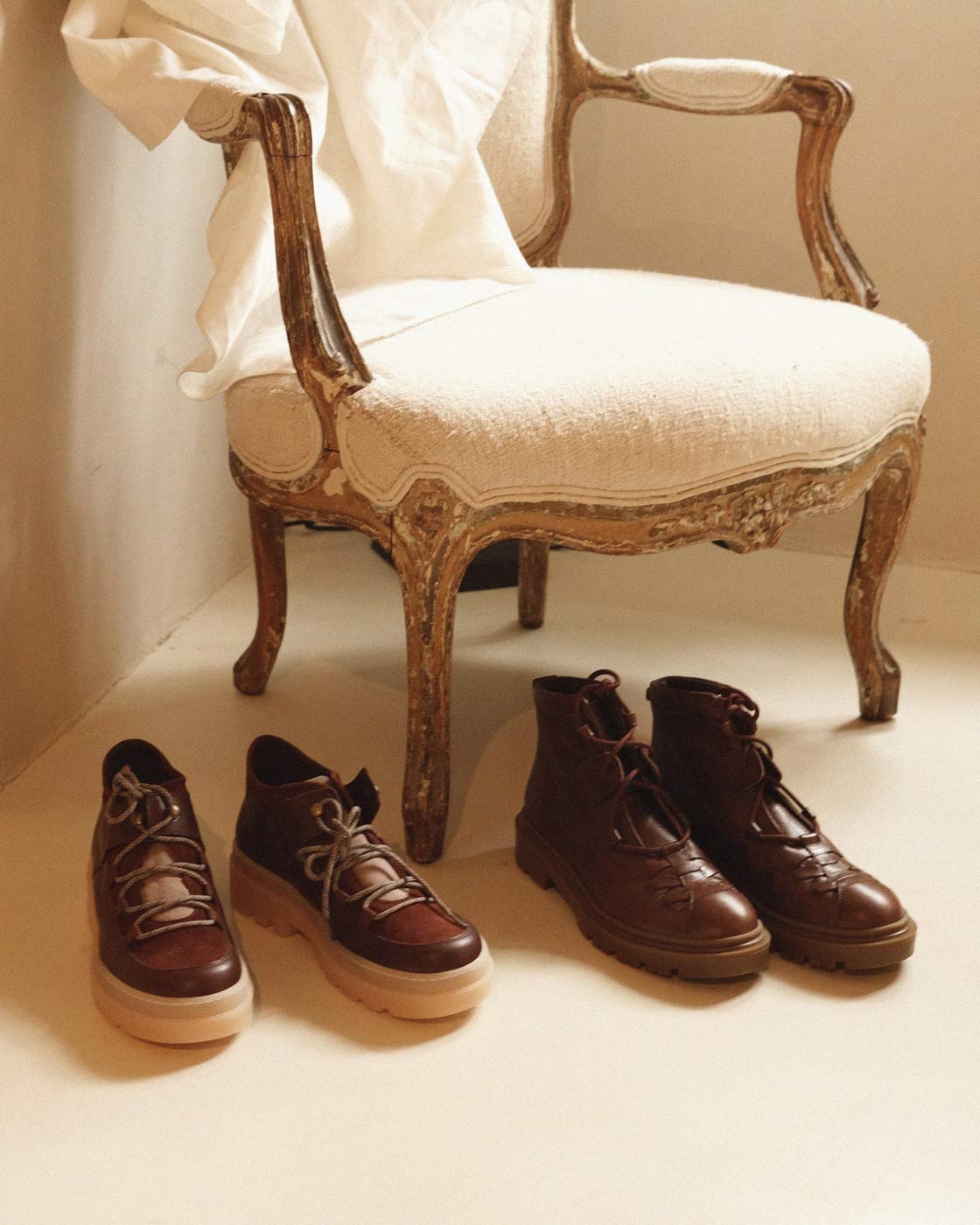
MODEL: ABRA LIGHT MAHOGANY AND ZEA BROWN
Can you share some specific challenges you've faced as a mother of two girls while directing and producing a film? How do you find balance between your professional life in film and your personal life as a mother? Do you have any advice for other women trying to balance both responsibilities?
Motherhood changed everything, including at work. From basic things like my work schedule (for example, staying up late at night getting a text ready is no longer realistic, since I can't make up for those lost hours of sleep the next day) to the mental load, so brutal during my parenting years, that I've had to balance on the professional side and that's only possible by delegating tasks, mainly office logistics, paperwork... My presence on set is no longer the same. Now I do far fewer projects than before, but they're more ambitious: If I'm going to spend a month shooting sixteen hours a day, it has to be really worth the effort. The subject matter of my films is also different; now I'm interested in delving into more social themes, making films that are transformative in some way.
When it comes to balancing parenting and work, I am extremely lucky that, except during filming, I work from home. I can do my job with a mobile phone, a computer and an internet connection from wherever I am. This gives me a lot of freedom and allows me to organise my time and adapt to my daughters, and not the other way around. My partner and I work together and we are a team, both professionally and in raising our daughters. When I need to travel for face-to-face meetings, filming, get-togethers or talks, conciliation is possible thanks to the support of my partner or, if we both have to be away, our families, who are there when needed.
In addition, at home we involve our daughters in our work in a very organic way. The world of cinema is a universe that both of them like and enjoy feeling that they are part of it. My eldest daughter has come to several of our shoots and loves, for example, seeing the editing and post-production process… Even helping out and seeing how the film is taking shape. They have even gone to the other side of the camera, as in “Ancestral” where both are part of the artistic cast of the film.
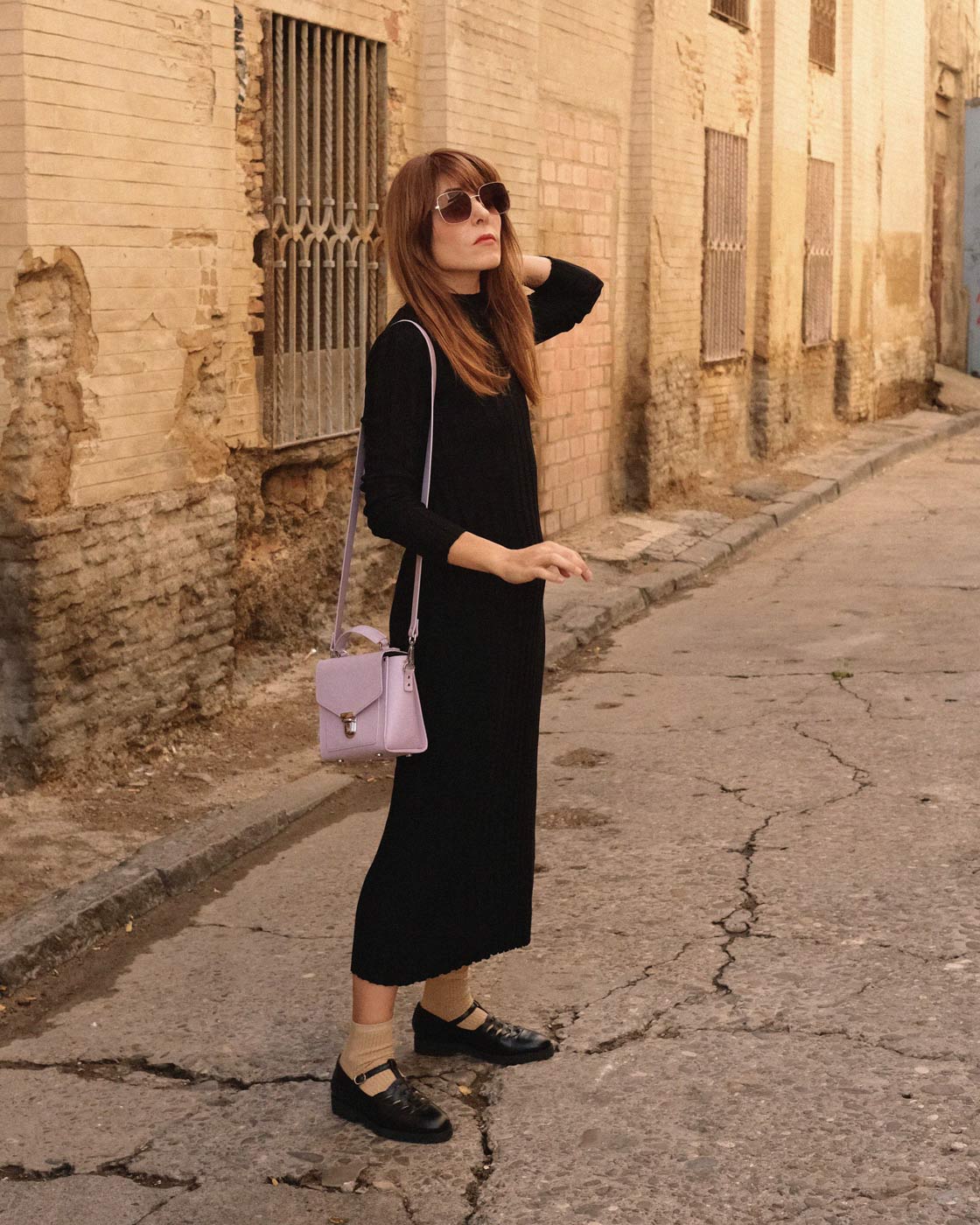
MARTA CABRERA WITH HER BLACK IMAI
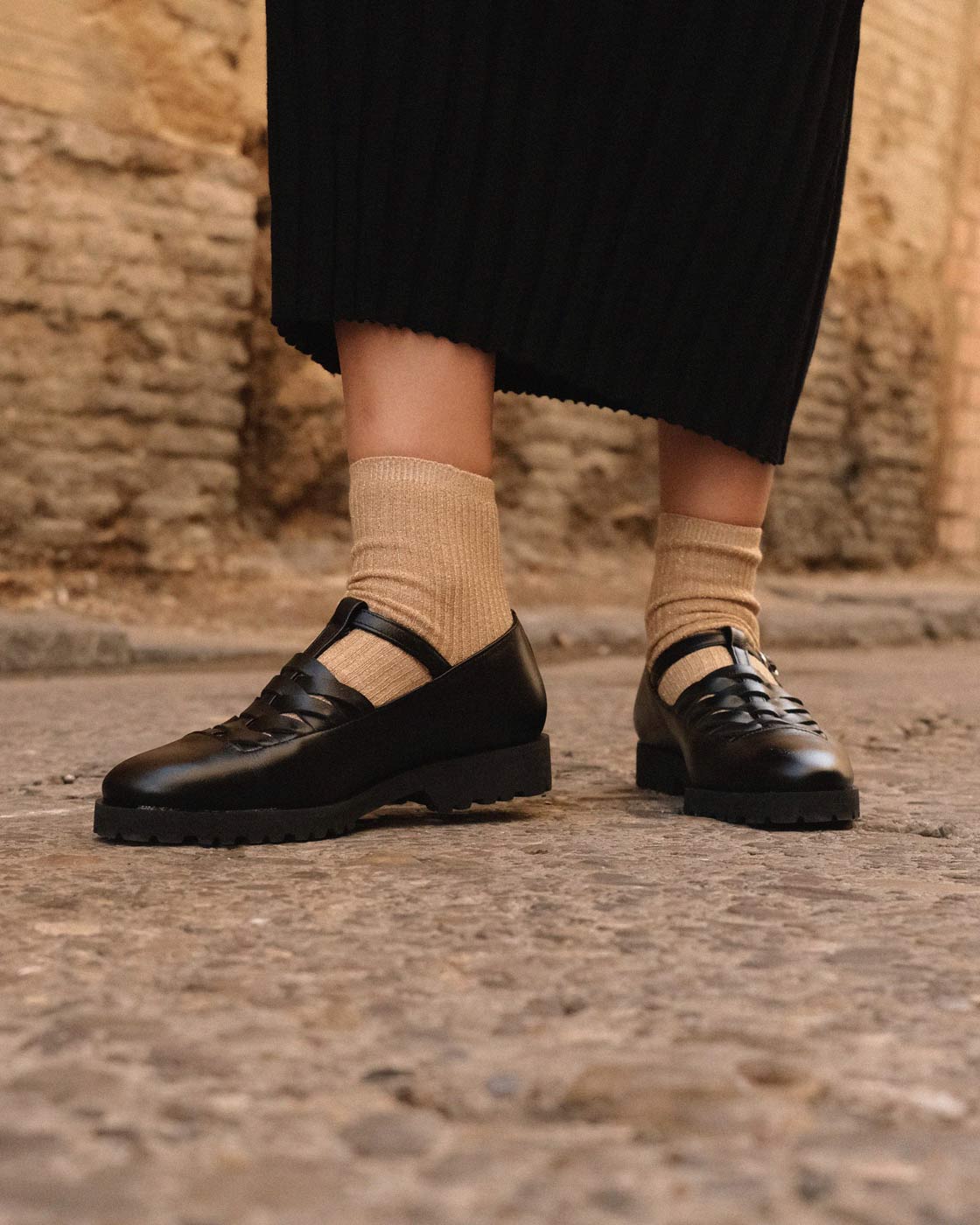
In the context of your experience in the film industry, have you faced any obstacles or gender biases? How have you overcome them and what advice can you offer to other women who may encounter similar challenges?
Yes, of course. The audiovisual sector is a very masculinized sector. There are super interesting studies from associations such as CIMA (Association of Women Filmmakers and Audiovisual Media) that show that last year only 37% of the positions occupied in the sector were held by women. And most of these positions are made up of stereotypical positions (those related to aesthetics or care, such as wardrobe, art, makeup, hairdressing...). If we move up to leadership positions (production, direction, scriptwriting...) the percentage of women drops very noticeably. The same is true in front of the screen. Female roles are less abundant and are generally subordinated to male characters, who are usually the ones who support the plot in the stories.
There is no equality either internally or externally. It has been difficult for me to make myself heard in a world that is so masculine. I have been in offices where I was the only woman in the meeting and my contributions or ideas were questioned or I was treated with condescension.
It's not easy, but it's important to trust in our abilities. Believing in yourself is essential. Leaving the impostor syndrome aside and being clear about the path you want to follow and where you want to go. What you want to say, what mark you want to leave and, above all, what makes you feel fulfilled and complete.